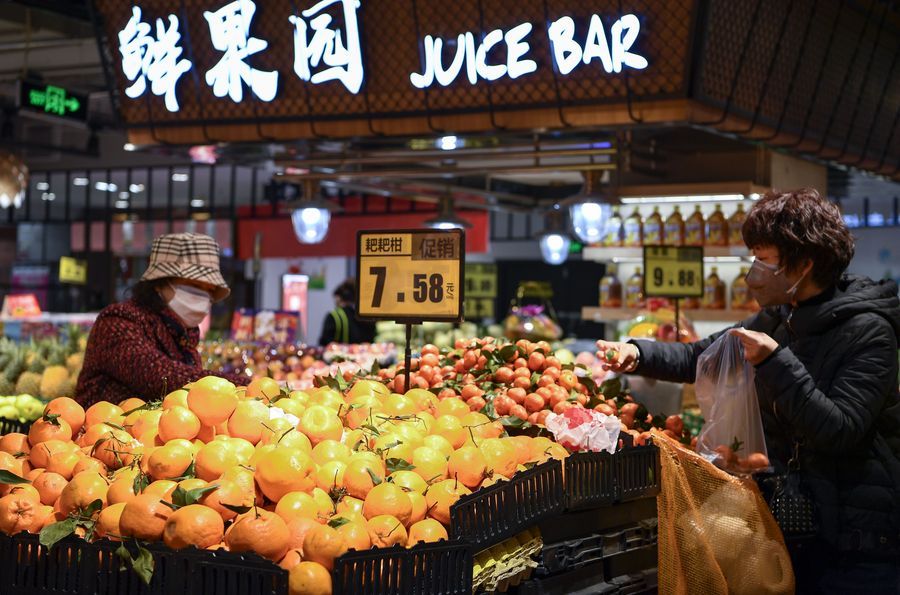Inflation easing gives greater space for stimulus


The continued easing of China's consumer inflation, which hit a seven-month low in April, has provided more space for the country to roll out a much-needed economic stimulus package, analysts said on Tuesday.
The consumer price index, a main gauge of inflation, rose 3.3 percent year-on-year in April, the lowest level in seven months and down from 4.3 percent in March, the National Bureau of Statistics said on Tuesday.
The easing of inflationary pressure mainly resulted from increased food supply as many enterprises resume operations and people's lives are getting back to normal, said Dong Lijuan, a senior NBS statistician.
Food prices increased by 14.8 percent year-on-year in April, down by 3.5 percentage points from March. The surge in pork prices, the biggest contributor to rising consumption inflation, abated to 96.9 percent, compared with 116.4 percent a month earlier, the bureau reported.
Analysts said the CPI reading may continue to fall in the coming months partly thanks to the increased food supply and a high base of pork prices.
"The slowdown in inflation has created a favorable condition for ramping up economic stimulus," said Liu Xuezhi, a senior researcher at the Bank of Communications' Financial Research Center.
"It also underscored the need to do so, as the declining non-food inflation indicated that the recovery in demand has been slower than supply," Liu said.
The year-on-year rise in non-food prices slowed to 0.4 percent in April, according to the NBS. Meanwhile, the producer price index, which gauges factory gate prices, declined 3.1 percent year-on-year in April, widening from a 1.5 percent drop a month earlier.
Analysts attributed the PPI drop to a persistent slump in global commodity prices as well as a sluggish recovery in demand. The latter factor could intensify as the downward pressure on exports caused by the COVID-19 pandemic is on the rise.
To shore up domestic demand, China is expected to roll out a fiscal stimulus package at the annual gathering of the National People's Congress, which will start on May 22.
The package may total more than 10 trillion yuan ($1.41 trillion), the equivalent of about one-tenth of the country's annual GDP and compared with 7.2 trillion yuan last year, according to a CITIC Securities report.
Other measures to inject growth momentum may also be unveiled at the upcoming meeting of the national legislature, the report said.
China is planning to roll out more measures to support the construction of strategic emerging industrial clusters to cushion the impact of the epidemic, the country's top economic regulator said on Tuesday.
"Building emerging industrial clusters of strategic importance is vital to promoting high-quality development of strategic emerging industries," said Zhao Chenxin, deputy secretary-general of the National Development and Reform Commission.
Zhao said the NDRC will make a big push to stimulate the vitality of enterprises, give full play to the guiding role of government-backed funds, and increase public support to foster high-quality development of strategic emerging industries.
"The key in price level management will be preventing deflationary risks for the rest of the year," said Zhang Deli, chief macroeconomic analyst at Guangdong province-based Yuekai Securities.




































